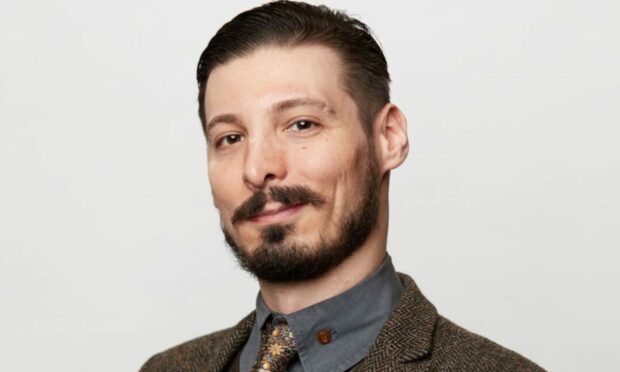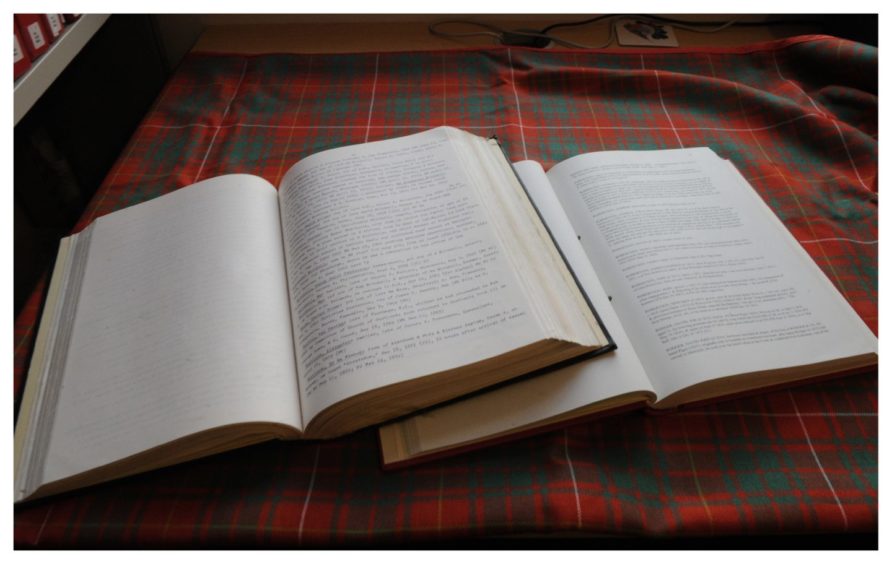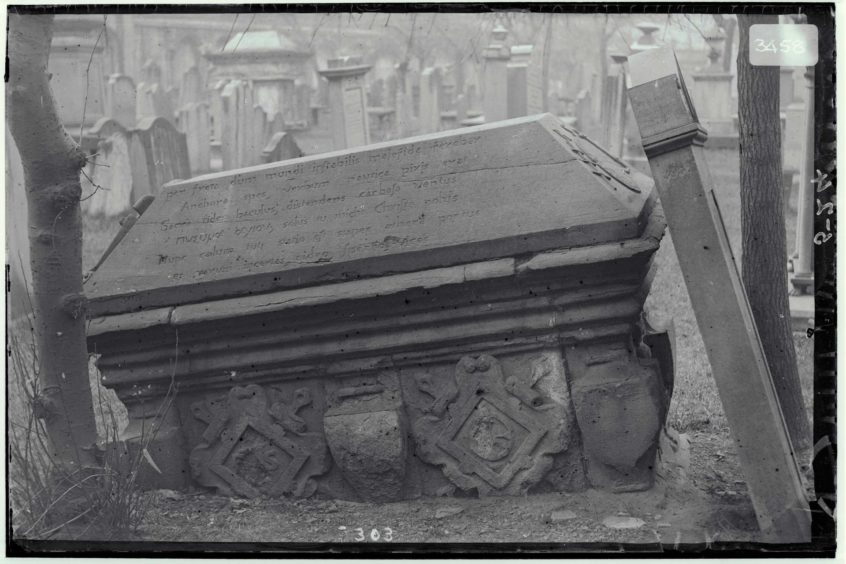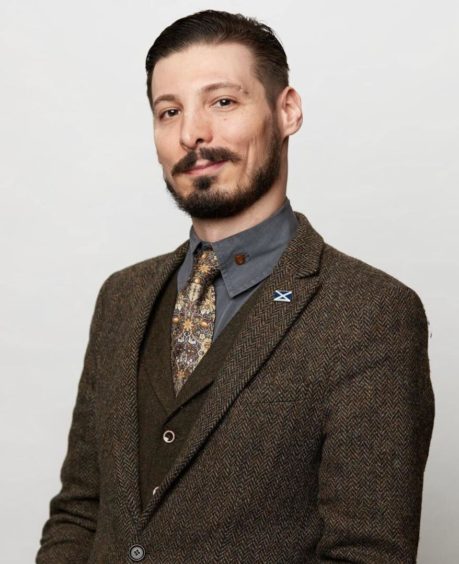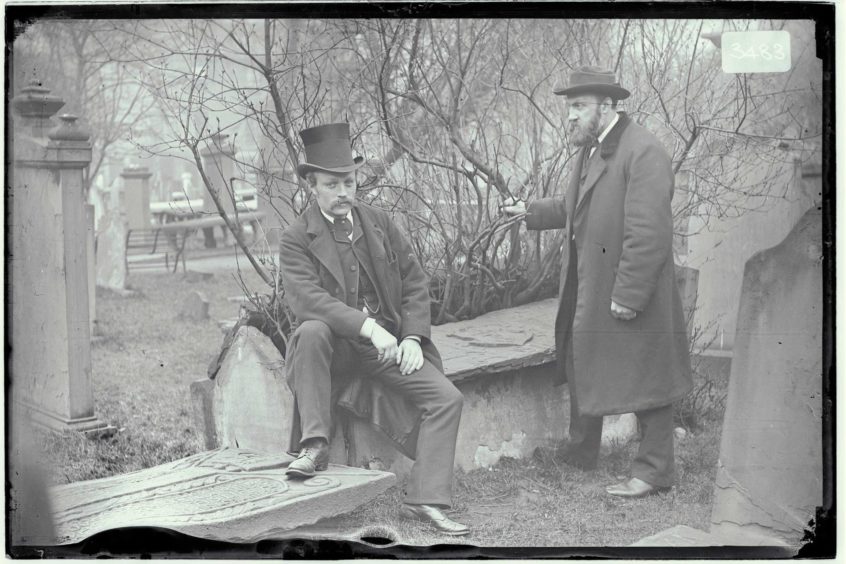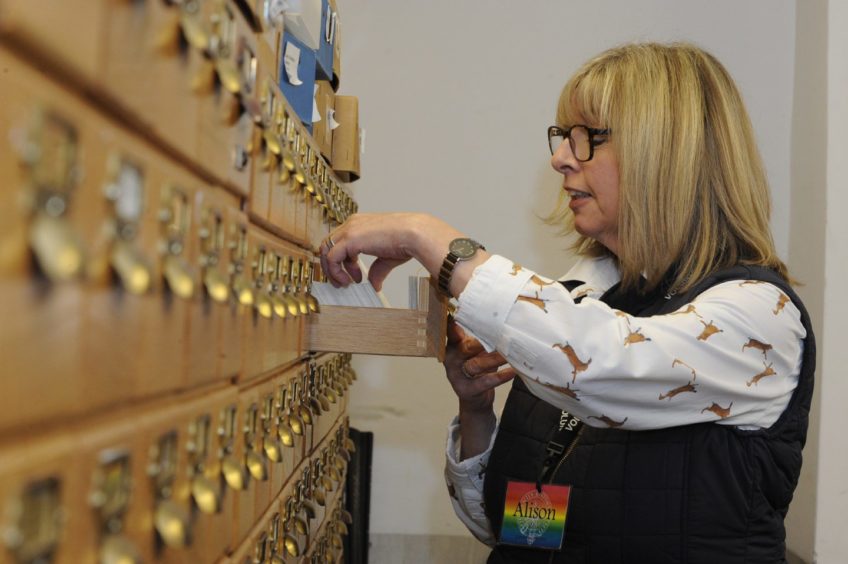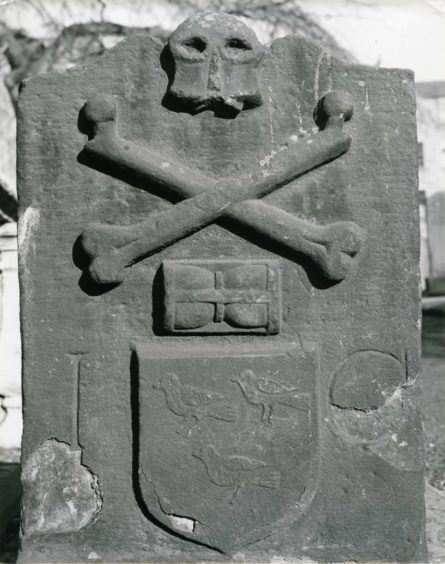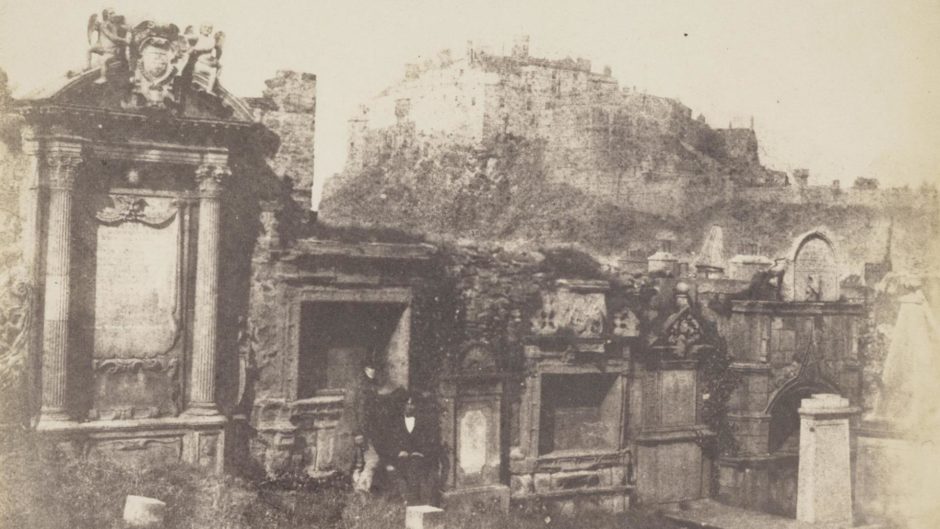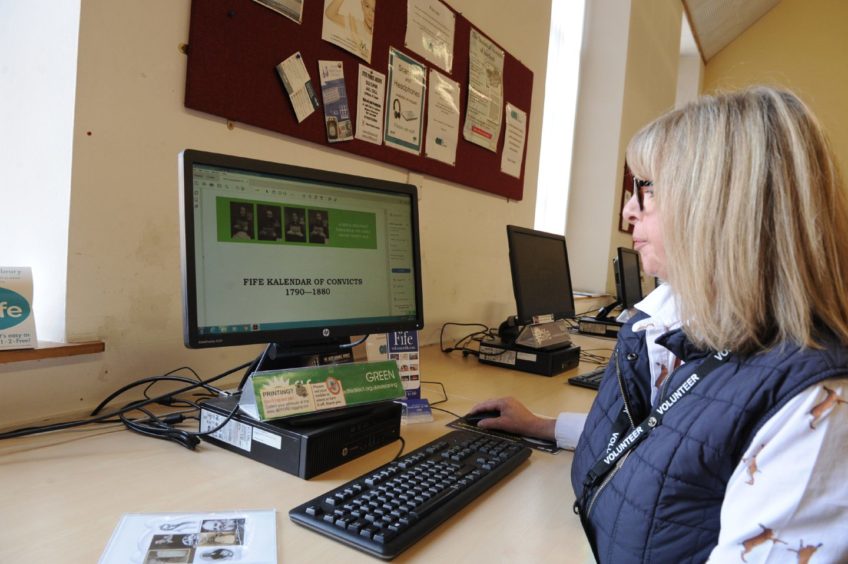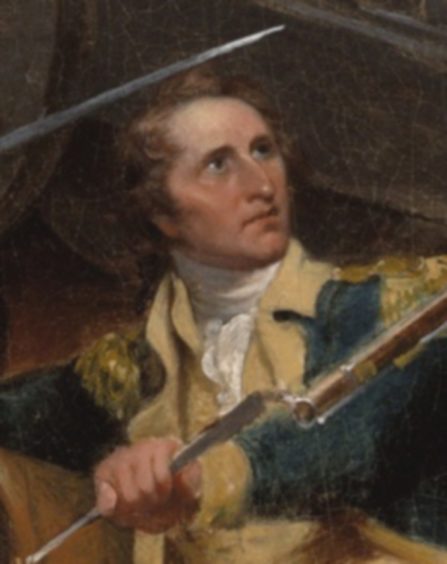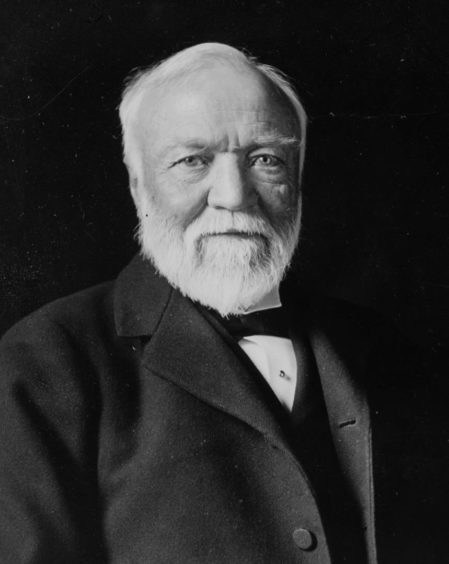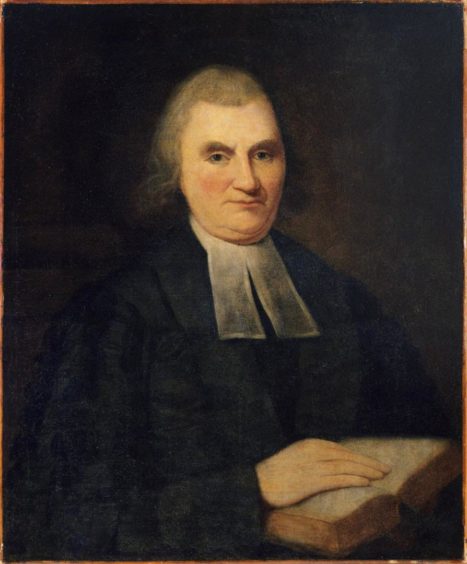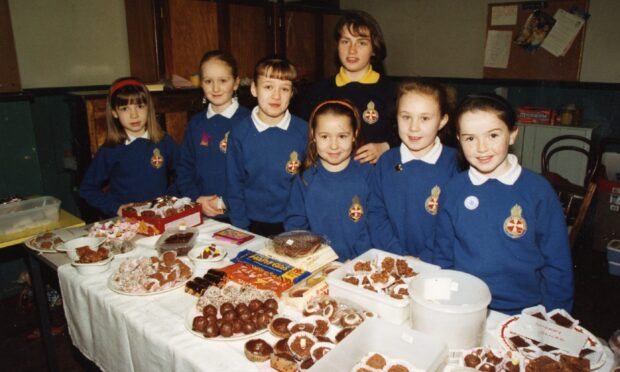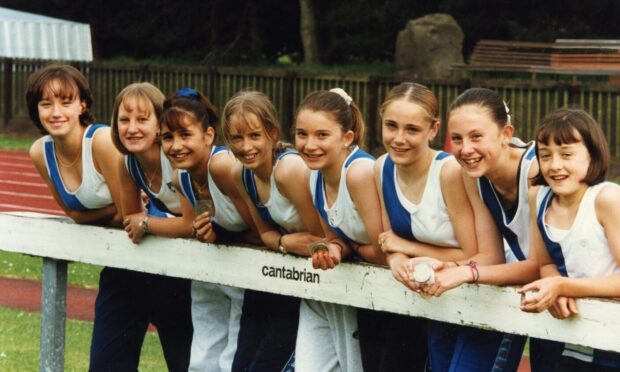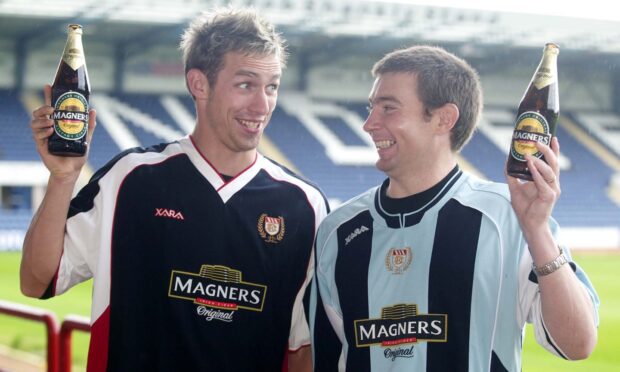Michael Alexander finds out about the largest collection of Scottish family history records ever made available online which has been published by leading UK family history website Findmypast.
With a mixed Scottish and Sicilian ancestry, Myko Clelland has been “addicted” to family history since he was a boy.
Growing up on the outskirts of Manchester, he used to go to the archives and libraries as an 11-year-old to “prove or disprove” stories fed to him by his family.
However, if, as he suspects, his family told him tales to keep him quiet, he says it had quite the opposite effect.
“They just couldn’t shut me up after that!” laughs the 35-year-old.
“I’ve got a relative who was sentenced to death in the 1820 rebellion and he was eventually exiled to Australia. He was in Stirling Castle.
“There are all kinds of heroes and villains in my family history. But my story is not unique in any way.
“The great thing about family history is that it’s not that these stories are being told – they are being discovered.
“They are there waiting for us. We’re not making new stories. We’re revealing stories that have been there for centuries.”
Lifelong passion
Myko’s lifelong passion for genealogy led him to a master’s degree in family history at Strathclyde University.
In 2012, he joined leading UK family history website Findmypast – owned by Dundee-based Courier publisher DC Thomson – and today he is Findmypast’s Regional Licensing & Outreach Manager, based in Edinburgh.
Having worked for Findmypast for nine years, Myko says it’s “very difficult to want to do anything else”.
“It’s such a rewarding occupation and profession because of the joy that family history brings to people all over the world,” he says.
However, with Findmypast recently publishing the largest collection of Scottish family history records ever made available online, as reported by The Courier, he anticipates interest in all things genealogical will keep growing.
The vast new online collection of Old Parish Records has been published in collaboration with local archives and organisations across Scotland.
Dating back to 1561 and spanning 450 years of Scottish history, the new collection contains more than 10.7 million historical documents chronicling baptisms, marriages, burials and more.
It allows family historians across the globe to uncover rare details of their ancestor’s lives and the stories behind major life events.
When combined with Findmypast’s existing collection of Scottish records and historical newspapers, the release firmly establishes the company as the home of the largest collection of Scottish family history records available anywhere online, enabling users to explore their Scottish family tree in greater depth and detail than ever before.
Celebrity launch
Myko says he “moved heaven and earth” to get celebrity speakers involved for the online launch event.
Dundee-born Succession actor Brian Cox talked about his own family history and the importance of knowing about family roots.
Meanwhile, actor and storyteller Colin McFarlane who plays a slave called Ulysses in the STARZ television drama series Outlander, revealed that he’s made an “incredible” new discovery about his family’s links to the Trans-Atlantic slave trade.
🏴 Hm. It seems I could have Scottish roots! My 2 Scottish children would be most impressed! @Ancestry DNA tests have been ordered!!… https://t.co/IGo0RXbQzK
— Colin McFarlane (@colinmcfarlane) August 2, 2021
Significantly, however, the launch night also honoured the many people involved in these projects behind the scenes, including the volunteers from local family history societies who do the transcriptions.
“It’s kind of a watershed moment in a way,” says Myko.
“First of all this is the largest collection of its kind ever released and the most comprehensive, which makes it quite exciting.
“It means it’s really going to help people – particularly those people who live further away.
“They are part of the Scottish diaspora and in the current situation aren’t able to come and visit and look at these records or anything.
“Scotland has a bit of a problem with more common names. With this comprehensive index, it means you’ve got this extra chance of finding extra information you can use to search.
“But also, this adds to the collection that we’ve been growing for quite some time.
“We’ve added I think since 2019 over 200 million Scottish records. It starts to then build together and make this a real place where you can go and you can find your Scottish ancestors.
“But it’s more of a shared victory really. It’s because of all of these organisations and these partners and these societies that this is made possible.”
Church records
Myko explained the resource brings together a wide variety of important historical records, many of which were previously inaccessible to public and are now fully searchable in new ways for the first time.
This includes records of non-conformist churches including the Episcopal, Free Church, United Free Church and more.
The records include mort cloth rentals – records of deceased Scots who were too poor to afford a proper burial. Instead they had to hire a cloth that was placed over their coffin.
There are also lists of “ringings of the burial bell’. For people who were too poor even to afford a mort cloth, they could instead pay for a church bell to be rung in memory of their loved one.
“In some parts of the Highlands, the Scottish famine was almost as bad as the Irish one,” adds Myko.
“These people were quite poor and now we can find out what happened to this part of Scottish heritage.
“In Scotland a lot of people also had irregular marriages where they pulled two witnesses into their house and said ‘we’re married now and that is fine’.
“The church didn’t quite like that because of course you had to pay for a marriage in a church and so they offered forcibly to legitimise these marriages ‘in the eyes of God’ by paying a fine, they paid that to the church , so that the marriage was ‘legitimate’.”
Local experts
The collaborative project saw Findmypast work with volunteers from nine Scottish local and national family history societies, including The Scottish Genealogy Society; Fife Family History Society; The Highland Family History Society; Dumfries & Galloway Family History Society; Renfrewshire Family History Society; Lothians Family History Society; Lanarkshire Family History Society; Glasgow & West of Scotland Family History Society and West Lothian Family History Society.
Names, dates, locations, the names of parent’s, spouses, children and other biographical details such as occupations, residences and more were transcribed and then digitally converted thanks to the hard work of hundreds of Scottish family historians.
Myko says the role of these local experts has been “huge”.
“They know the parishes, they know the churches, they know where to find records that perhaps others don’t know exist,” he says.
“Those volunteers will know local surname spellings, they’ll know how to read certain handwriting.
“It’s their families that tie into a much bigger picture. It’s very easy to become an expert in one area if you focus on that for a lifetime, but it’s impossible to become an expert in the whole country.
“There’s just a fantastic well of knowledge that comes from these societies. We just can’t underestimate it.”
Ordinary people
Some of Scotland’s most renowned sons and daughters can be found within the collection, including Culloden veteran and revolutionary war hero Hugh Mercer; American founding father and Presbyterian minister John Witherspoon; novelist, essayist, poet and travel writer, Robert Lewis Balfour Stevenson; Scotland’s national poet, Robert Burns; and titan of industry and celebrated philanthropist, Andrew Carnegie.
Crucially, however, these are the records of the ordinary people of Scotland.
“We don’t really in this collection look at the lords and the ladies,” says Myko,”but anyone in Scotland had and has potential to change Scotland and change the world.
“If you look at some of the names we picked out like Hugh Mercer and John Witherspoon, they were founding fathers of America. Andrew Carnegie became an American giant of industry and again had very humble Scottish roots. These kind of things happened a lot.
“There are prime ministers in Canada, New Zealand who had roots in Scotland.
“I think Scotland is such an industrious nation that we’d run out of time long before we’d run out of names of people who made their mark or had descendants who did.
“There are such a vast number of names in here. We picked out some of them – the heroes and villains of the day – that caught attention.
“But that’s no way exhaustive. Part of the magic of this is that the people who are unsung are in some ways more compelling.
“That patchwork of people is what makes Scotland so exciting. When you combine it with other records that we have, you can tell this fantastic story and all of those stories tell you who you are.
“I love that phrase ‘you live as long as you are remembered’. It’s a Russian proverb. These names that haven’t been spoken for centuries. These names that have not been found and which have not been able to be discovered.
“Now we’re almost bringing them back to life and I think that’s quite a poetic thing to do.”
To find out more go to findmypast.co.uk
